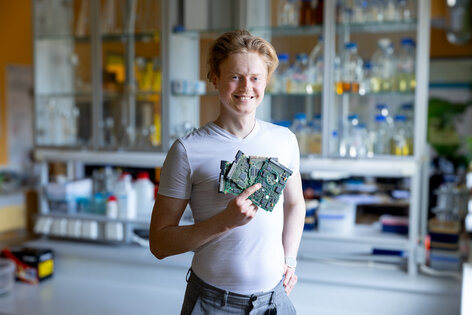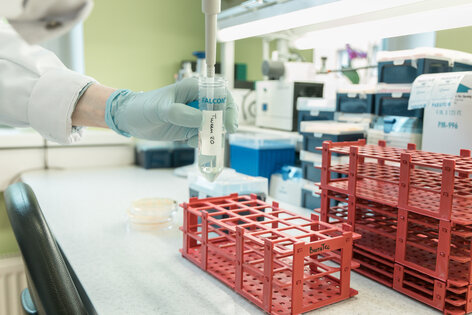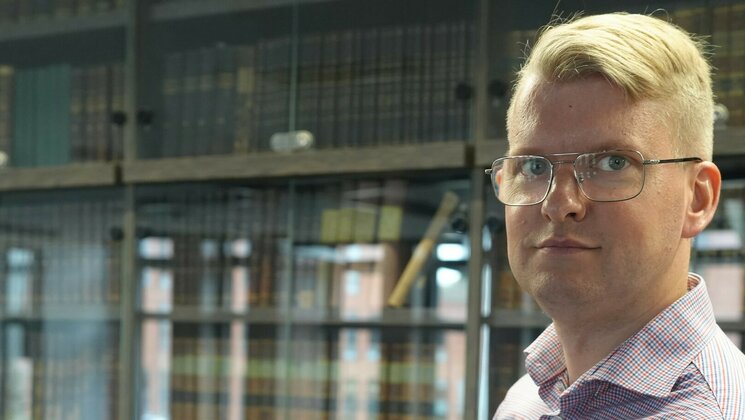-
Faculty of Arts and HumanitiesDean's Office, Faculty of Arts and HumanitiesJakobi 2, r 116-121 51005 Tartu linn, Tartu linn, Tartumaa EST0Institute of History and ArchaeologyJakobi 2 51005 Tartu linn, Tartu linn, Tartumaa EST0Institute of Estonian and General LinguisticsJakobi 2, IV korrus 51005 Tartu linn, Tartu linn, Tartumaa ESTInstitute of Philosophy and SemioticsJakobi 2, III korrus, ruumid 302-337 51005 Tartu linn, Tartu linn, Tartumaa EST0Institute of Cultural ResearchÜlikooli 16 51003 Tartu linn, Tartu linn, Tartumaa EST0Institute of Foreign Languages and CulturesLossi 3 51003 Tartu linn, Tartu linn, Tartumaa EST0School of Theology and Religious StudiesÜlikooli 18 50090 Tartu linn, Tartu linn, Tartumaa EST0Viljandi Culture AcademyPosti 1 71004 Viljandi linn, Viljandimaa EST0Professors emeritus, Faculty of Arts and Humanities0Associate Professors emeritus, Faculty of Arts and Humanities0Faculty of Social SciencesDean's Office, Faculty of Social SciencesLossi 36 51003 Tartu linn, Tartu linn, Tartumaa EST0Institute of EducationJakobi 5 51005 Tartu linn, Tartu linn, Tartumaa EST0Johan Skytte Institute of Political StudiesLossi 36, ruum 301 51003 Tartu linn, Tartu linn, Tartumaa EST0School of Economics and Business AdministrationNarva mnt 18 51009 Tartu linn, Tartu linn, Tartumaa EST0Institute of PsychologyNäituse 2 50409 Tartu linn, Tartu linn, Tartumaa EST0School of LawNäituse 20 - 324 50409 Tartu linn, Tartu linn, Tartumaa EST0Institute of Social StudiesLossi 36 51003 Tartu linn, Tartu linn, Tartumaa EST0Narva CollegeRaekoja plats 2 20307 Narva linn, Ida-Virumaa EST0Pärnu CollegeRingi 35 80012 Pärnu linn, Pärnu linn, Pärnumaa EST0Professors emeritus, Faculty of Social Sciences0associate Professors emeritus, Faculty of Social Sciences0Faculty of MedicineDean's Office, Faculty of MedicineRavila 19 50411 Tartu linn, Tartu linn, Tartumaa ESTInstitute of Biomedicine and Translational MedicineBiomeedikum, Ravila 19 50411 Tartu linn, Tartu linn, Tartumaa ESTInstitute of PharmacyNooruse 1 50411 Tartu linn, Tartu linn, Tartumaa ESTInstitute of DentistryL. Puusepa 1a 50406 Tartu linn, Tartu linn, Tartumaa ESTInstitute of Clinical MedicineL. Puusepa 8 50406 Tartu linn, Tartu linn, Tartumaa ESTInstitute of Family Medicine and Public HealthRavila 19 50411 Tartu linn, Tartu linn, Tartumaa ESTInstitute of Sport Sciences and PhysiotherapyUjula 4 51008 Tartu linn, Tartu linn, Tartumaa ESTprofessors emeritus, Faculty of Medicine0associate Professors emeritus, Faculty of Medicine0Faculty of Science and TechnologyDean's Office, Faculty of Science and TechnologyVanemuise 46 - 208 51003 Tartu linn, Tartu linn, Tartumaa ESTInstitute of Computer ScienceNarva mnt 18 51009 Tartu linn, Tartu linn, Tartumaa ESTInstitute of GenomicsRiia 23b/2 51010 Tartu linn, Tartu linn, Tartumaa ESTEstonian Marine Institute0Institute of PhysicsInstitute of ChemistryRavila 14a 50411 Tartu linn, Tartu linn, Tartumaa ESTInstitute of Mathematics and StatisticsNarva mnt 18 51009 Tartu linn, Tartu linn, Tartumaa EST0Institute of Molecular and Cell BiologyRiia 23, 23b - 134 51010 Tartu linn, Tartu linn, Tartumaa ESTTartu ObservatoryObservatooriumi 1 61602 Tõravere alevik, Nõo vald, Tartumaa EST0Institute of TechnologyNooruse 1 50411 Tartu linn, Tartu linn, Tartumaa ESTInstitute of Ecology and Earth SciencesJ. Liivi tn 2 50409 Tartu linn, Tartu linn, Tartumaa ESTprofessors emeritus, Faculty of Science and Technology0associate Professors emeritus, Faculty of Science and Technology0Area of Academic SecretaryHuman Resources OfficeUppsala 6, Lossi 36 51003 Tartu linn, Tartu linn, Tartumaa EST0Area of Head of FinanceFinance Office0Area of Director of AdministrationInformation Technology Office0Administrative OfficeÜlikooli 17 (III korrus) 51005 Tartu linn, Tartu linn, Tartumaa EST0Estates Office0Marketing and Communication OfficeÜlikooli 18, ruumid 102, 104, 209, 210 50090 Tartu linn, Tartu linn, Tartumaa EST0Area of Vice Rector for DevelopmentCentre for Entrepreneurship and InnovationNarva mnt 18 51009 Tartu linn, Tartu linn, Tartumaa EST0University of Tartu Natural History Museum and Botanical GardenVanemuise 46 51003 Tartu linn, Tartu linn, Tartumaa EST0International Cooperation and Protocol Office0University of Tartu MuseumLossi 25 51003 Tartu linn, Tartu linn, Tartumaa EST0Area of RectorRector's Strategy OfficeInternal Audit OfficeArea of Vice Rector for Academic AffairsOffice of Academic AffairsUniversity of Tartu Youth AcademyUppsala 10 51003 Tartu linn, Tartu linn, Tartumaa ESTStudent Union OfficeÜlikooli 18b 51005 Tartu linn, Tartu linn, Tartumaa EST0Centre for Learning and TeachingArea of Vice Rector for ResearchUniversity of Tartu LibraryW. Struve 1 50091 Tartu linn, Tartu linn, Tartumaa ESTGrant Office
Industrial doctoral student combines work and studies
The industrial doctorate offers a unique opportunity for companies, universities and doctoral students to work together. An excellent example of this is Jaan Vihalemm, an industrial doctoral student at the University of Tartu, who applies the results of his research at the company BiotaTec OÜ.

The industrial doctorate differs from traditional doctoral studies by offering students the opportunity to combine their studies with professional work in the private, public or third sector. "There is exactly enough learning, especially lectures and seminars, in the industrial doctorate. It is a good change from working in a company," said Vihalemm.
Vihalemm’s university studies have taken place at the Institute of Molecular and Cell Biology. He is also currently working at BiotaTec, which uses microorganisms to extract rare metals from waste, or bioleaching, to recycle useful materials in a more environmentally friendly way. Vihalemm explores how to get rare metals from electronic waste, such as the printed circuit boards inside our computers, phones or home appliances.
The proposal to undertake the industrial doctorate was made to Vihalemm in his second working year by Priit Jõers, BiotaTec's Chief Scientific Officer and Associate Professor in General and Microbial Biochemistry at the University of Tartu. Vihalemm took the chance – he was offered an interesting project that fitted the topic of his doctoral thesis and aligned with the company's strategic goals, and offered an exciting job that he would not have to leave in the meantime for his doctoral studies.
Valuable cooperation for all involved
The industrial doctorate not only enriches the academic experience of the doctoral candidate, but also benefits the university and the partner organisation. Developing research-based products and services and upgrading the skills of specialists in partnership between the university and businesses gives companies a competitive edge in both local and international markets.

Priit Jõers, Vihalemm’s supervisor, also stressed the value of the industrial doctorate: it is an investment in talent and promotes collaboration between business and university. For example, during a practical course, students will be able to use BiotaTec’s 1000-litre reactors to explore the possibilities of growing microorganisms on an industrial pilot scale. Jõers believes that this is a great way to introduce students to careers in business and to enrich university education at a time when bioeconomy and industrial processes based on micro-organisms are increasingly common. "In order to avoid Estonia falling behind, people with PhDs and experience in applying these processes in industry are essential for the development of our economy," Jõers said.
Jaan Vihalemm is a good example of how the industrial doctorate is a significant step forward for both education and entrepreneurship: research and development does not take place only in a laboratory, but tackles real-life problems. Thanks to the industrial doctorate, we will see more and more research-based companies and entrepreneurial researchers in the future, and Estonia will become more internationally competitive.
Read the interview with Jaan Vihalemm (in Estonian) on the blog of the Institute of Molecular and Cell Biology.
Listen to the interview with Jaan Vihalemm and Monika Tasa, Development Adviser at the Office of Academic Affairs at the University of Tartu, about the possibilities offered by the industrial doctorate on radio Kuku’s science show “Teadus teab” (in Estonian).
Read more about the industrial doctorate.
Objectives of the industrial doctorate:
- promoting university’s cooperation with businesses, public- and third-sector bodies;
- enriching the university's doctoral studies and training top-level professionals to meet labour market needs;
- increasing the applicability of research and its relevance to the needs of society;
- increasing the share and capacity of R&D in businesses and institutions;
- diversifying doctoral career paths and increasing the share of PhD-holders in companies and institutions.

Karl Kruusamäe paves the way for human-robot collaboration full of possibilities


